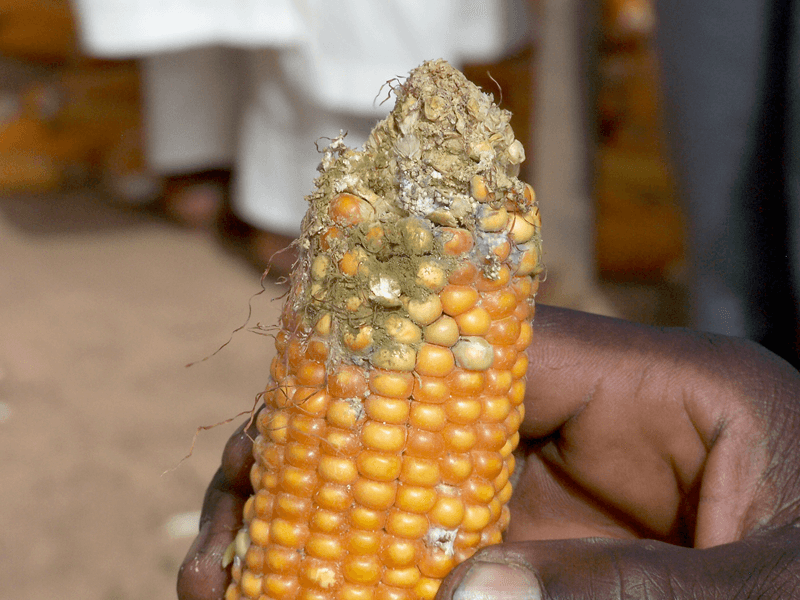We in the rich societies of the world don’t hear a lot about aflatoxin. It is probably one of the single largest causes of cancer in the developing world – particularly in Africa. Around a half a billion people are at risk from this toxin in their diet.
…
[R]ecently, a Swiss, family-owned grain handling equipment company called Bühler has cooperated with Microsoft to develop a system which can process corn at a rate of 15 metric tons per hour and reject any of the kernels that are contaminated with the nasty chemical aflatoxin. That is both amazing and very cool!…
As revolutionary as this technology promises to be, it is a good thing that it isn’t the sole solution. One way to reduce the infection/contamination issue is to intentionally spread a strain of the culprit fungus that does not happen to make aflatoxin. It’s a biological control strategy that was first developed by USDA researchers and commercialized in the US, but which has since been re-developed in Africa. Insect resistant, “GMO” maize also significantly reduces the incidence of the problematic infections. There is also a “gene silencing” strategy proven by an Arizona State researchers that would prevent the fungus from making its toxin even if it was able to infect the plant.
Read full, original post: A Remarkable New Technology That Will Diminish A Global Cancer Threat































